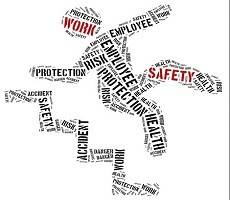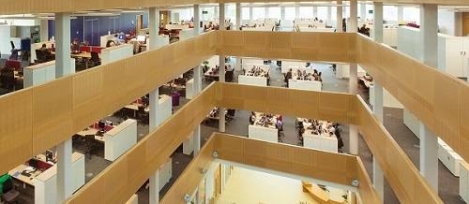August 30, 2016
Overwork leads to sleeplessness and lower workplace productivity 0
 A new study claims that there is a direct link between sleep and productivity. A survey of more than 97,000 employees in 33 industries and 139 countries from Global Corporate Challenge (GCC), found evidence of a link between sleep and performance. Currently, one in three adults regularly fail to get enough sleep, according to the US’ Centers for Disease Control and Prevention (CDC); and Harvard Medical School estimates that the cost adds up to USD $63.2 billion annually. This includes money lost through absenteeism as well as the accidents, mistakes, and impaired productivity employees suffer when they do show up to work. And the one of the primary causes is working long hours and forms of presenteeism such as checking emails at home. To help combat this problem the report urges those at the top of the organisation to set an example and demonstrate that working long hours in exchange for reduced sleep is counterproductive and won’t be encouraged.
A new study claims that there is a direct link between sleep and productivity. A survey of more than 97,000 employees in 33 industries and 139 countries from Global Corporate Challenge (GCC), found evidence of a link between sleep and performance. Currently, one in three adults regularly fail to get enough sleep, according to the US’ Centers for Disease Control and Prevention (CDC); and Harvard Medical School estimates that the cost adds up to USD $63.2 billion annually. This includes money lost through absenteeism as well as the accidents, mistakes, and impaired productivity employees suffer when they do show up to work. And the one of the primary causes is working long hours and forms of presenteeism such as checking emails at home. To help combat this problem the report urges those at the top of the organisation to set an example and demonstrate that working long hours in exchange for reduced sleep is counterproductive and won’t be encouraged.















 As regular readers are no doubt aware, normally we don’t comment on the reports and surveys we publish, instead leaving people to form their own opinions. However,
As regular readers are no doubt aware, normally we don’t comment on the reports and surveys we publish, instead leaving people to form their own opinions. However, 




 When former Google employee Marissa Mayer joined Yahoo as its CEO in 2012, she inherited the company’s vast problems. Though it was once seen as one of the first tech behemoths, Yahoo’s inability to come up with ground breaking products like Google and others, put it in a slow, steady decline. Mayer was immediately tasked with trying to reinvigorate the stagnating company. Her focus was to find a way to identify and retain talent, while phasing out ineffective employees. However, Yahoo’s new management policies have brought about much debate and criticism from HR experts. A controversial book by journalist Nicholas Carlson titled “Marissa Mayer and the Fight to Save Yahoo!” paints a highly critical view of Mayer’s first years as CEO. In response others have defended her, arguing that she has done the best she can with the resources available, but has become a scapegoat for poor management, like so many other women in powerful positions.
When former Google employee Marissa Mayer joined Yahoo as its CEO in 2012, she inherited the company’s vast problems. Though it was once seen as one of the first tech behemoths, Yahoo’s inability to come up with ground breaking products like Google and others, put it in a slow, steady decline. Mayer was immediately tasked with trying to reinvigorate the stagnating company. Her focus was to find a way to identify and retain talent, while phasing out ineffective employees. However, Yahoo’s new management policies have brought about much debate and criticism from HR experts. A controversial book by journalist Nicholas Carlson titled “Marissa Mayer and the Fight to Save Yahoo!” paints a highly critical view of Mayer’s first years as CEO. In response others have defended her, arguing that she has done the best she can with the resources available, but has become a scapegoat for poor management, like so many other women in powerful positions.


 The first full month of market activity in the UK’s commercial property sector since the Brexit vote, saw its value fall by just under three percent, according to
The first full month of market activity in the UK’s commercial property sector since the Brexit vote, saw its value fall by just under three percent, according to 
 Badly run and overrunning meetings remain amongst the main sources of workplace conflict and unhappiness, according to a study of 1,000 US employees from workplace software provider
Badly run and overrunning meetings remain amongst the main sources of workplace conflict and unhappiness, according to a study of 1,000 US employees from workplace software provider 








August 23, 2016
US Millennials ‘martyred’ behaviour helps drive culture of presenteeism 0
by Sara Bean • Comment, Flexible working, News, Wellbeing, Workplace
(more…)